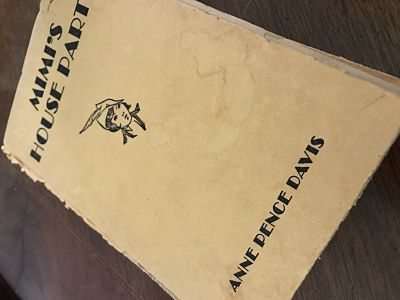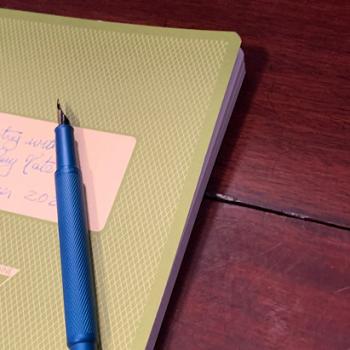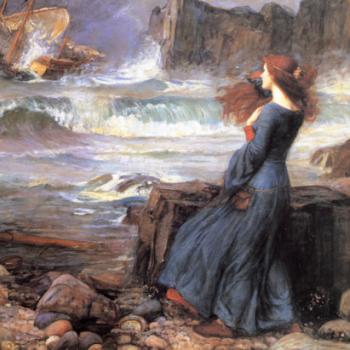 There are some really evil books out there: think Mein Kampf. There are also books that are just wretched: try Star Wars: Aftermath. There exists a select group of books that are both wretched and evil and I had the misfortune to read one as a child: Mimi’s House Party.
There are some really evil books out there: think Mein Kampf. There are also books that are just wretched: try Star Wars: Aftermath. There exists a select group of books that are both wretched and evil and I had the misfortune to read one as a child: Mimi’s House Party.
If you think there was a Golden American Age before the War, this book should dispel that illusion in three ways.
First, racism, overt racism, peddled to kids is just as bad as anything we are doing now. Mimi is so racist I cannot quote it directly, but safe to say, one part of the book depends on African-Americans being unable to keep more than one idea in “their” heads at a time. That is the least offensive part of a book that makes African-Americans infants or insane.
Please note this is done in the name of science. Spirituality is childlike or childish depending on the person holding it. White people use reason to solve problems and condescend to the superstitions of the “help.”
This book was for children in 1937. God saved America despite her vices.
Second, the book was not just escapist about the War that was coming, it was clueless. I can take a good book that helps Depression America forget, but not one that helps us laugh when we should be fighting. Any American book that contains these sentences has gone wrong in a special way:
At the same time she hugged Mother Dear, Mimi, and Junior all three, for Mimi would not let go of Junior and Junior would not let go of Mimi- until his idea struck. Squirming free, he demanded their attention. While Mimi and Cissy marveled at how much he had grown, he clicked his heels together, saluted them in an exacting foreign manner, and greeted them formally with a “Heil Hitler!”
Hilarious! This charming prank is followed up by a series of hijinks Junior and the rich kid gang play on the poor African American community. Somehow Anne Pence Davis’ character Mimi is described as a “tomboy” and praised for “not being perfect” like that Pollyanna. It is true that to the best of my recollection, Pollyanna never bullied the help for laughs, but then she wasn’t a tomboy either.
Third, even by children’s serial literature standards, this is not a well written book. There was evidently a market for this: ” ‘Flying is marvelous- precious!’ Mimi raved.” and so the contemporary reader will rave as well as each precious piece of prose (Mother Dear!) plops out. Maybe Harry Potter isn’t Shakespeare, but it isn’t Mimi’s House Party either.
If in 1937, or even later, you did not know better, perhaps these books were fun. I get it. Kids don’t know and the grownups were morally blind. One has to overlook the problems of the times in any book (recall: no moral Golden Age) to learn. If we focus on our virtue, then we might miss virtues that Mimi and the gang had that we lack. Just as we hope our descendants will have mercy on us for our foibles (Imagine the reaction when they get to the pronoun “ze.”) so we should have mercy on our literary ancestors.
Mimi does not merit the break. Mimi doesn’t just have racist bits, it wallows in racism. Maybe there is something to be said for the way kids are allowed to roam free and play, in fact, I know there is something to be said for it, but when Honky gets up to one of his tricks with his pet alligator Gladstone . . . I lose track of any virtue.
If you read Mimi’s House Party, prepare for some unreconstructed Southern fun.
Yikes.
—————
In fairness to my parents, good Christians that they were they let me read anything I could find. This mostly worked well (Asimov! Tolkien! Encyclopedia Brown! Civil War books!). They are not responsible for this . . . book. I think the thing that shocked me was that if I was not careful my upbringing would have led me to think racism dead and gone in 1865.
This is Bright Week for Christians . . . a time we are called to celebrate the Good News. As a result, this week I am writing on topics that are less than . . . serious. Here is the first, second, third and fourth.












